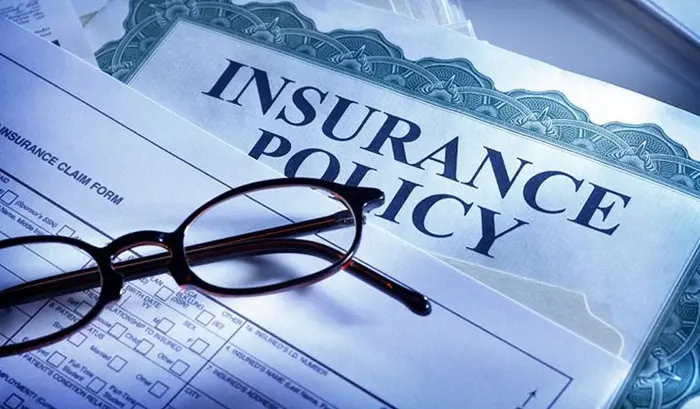Every year, around February, many homeowners receive an email about their escrow account analysis. This report shows whether their escrow balance is enough to cover property taxes and homeowners’ insurance. If the balance is low, homeowners must pay the difference. This payment can be made in one lump sum or added to their monthly mortgage payments over the next year.
What Is an Escrow Account Shortfall?
Escrow accounts are used in the U.S. mortgage system to hold funds for property taxes and insurance. Mortgage servicers manage these accounts and pay the bills on behalf of homeowners. Recently, many homeowners have faced shortfalls in these accounts due to rising taxes and insurance costs.
When property taxes and insurance premiums increase, homeowners often unknowingly underpay these bills. As a result, when bills come due, they owe extra money. This can cause their fixed mortgage payments to increase suddenly, sometimes by over $100 a month.
This unexpected increase can be a shock, especially for homeowners already struggling with high home prices and mortgage rates near 7%.
Lisa Araujo, a loan officer in Alabama, explains, “Many people think that once you have an escrow account, you can forget about it. They trust it is being managed correctly. But we need to talk about how taxes and insurance are increasing.”
How Common Are Escrow Accounts?
About 80% of mortgage holders have escrow accounts. Homebuyers who put less than 20% down or use nontraditional mortgages must open one. Homeowners who meet certain qualifications can opt out and pay taxes and insurance themselves.
Even though escrow accounts are common, they can be confusing. A survey by Lereta, a loan tax services company, found that 28% of homeowners did not realize changes to their escrow accounts would affect their monthly payments. More than half of homeowners who faced increased payments were surprised by the change.
Why Are Escrow Shortfalls Happening?
Most often, rising property taxes cause escrow shortfalls. Since the pandemic began, home prices have risen quickly. This increase boosts homeowners’ equity but can also raise property taxes when homes are reassessed.
Tax limits vary by state. Some states cap annual increases in property taxes, but not all do, and the rules can differ widely.
Mitchell Dunn, a loan officer in Kentucky, says, “Some people have had to give up their homes because they appreciated too much.”
Escrow shortfalls are part of what experts call the “hidden costs” of owning a home. These include taxes, insurance, homeowners association dues, and maintenance costs.
Dunn advises buyers to keep their mortgage payments below 25% to 30% of their gross monthly income, even if they qualify for a higher loan. “That way, you’re ready for mortgage payments to go up,” he says.
How Does the Mortgage Payment Break Down?
With a fixed-rate mortgage, the portion of the payment covering principal and interest stays the same throughout the loan term. The escrow payment, covering taxes and insurance, is included in the monthly mortgage payment but can change.
Don Miller, from the Montana Department of Revenue, has seen tax increases cause hardship in his community. In Great Falls, Montana, the median home price has jumped from $253,000 five years ago to $414,000 today.
Miller shares, “People come to my office in tears. They don’t know how to pay a $2,000 tax bill.”
She experienced the increase herself. When she bought her home eight years ago, her monthly payment was $875. Last year, after an $800 escrow adjustment, it rose to $1,040.
Miller opted out of escrow and now pays taxes and insurance separately from her mortgage. This change lowered her monthly mortgage payment to $740.
“It’s easier to budget this way,” she says.
New Homes and Escrow Risks
Homebuyers who purchase newly constructed homes often face bigger escrow shortfalls. It can take one or two years for tax assessors to determine a new home’s true value.
Initially, buyers pay taxes based on the land alone. When the home is reassessed, taxes usually rise sharply.
Jennifer Hughes Hernandez, a loan officer in Houston, advises new homebuyers: “Put money aside for taxes. The initial tax amount is often less than what you’ll actually owe.”
Rising Insurance Costs Add Pressure
Insurance premiums have also risen rapidly due to climate change increasing the frequency of natural disasters. These events reduce insurers’ profits, pushing premiums higher.
Homeowners with large escrow shortfalls might lower costs by switching insurance providers. However, lenders warn buyers to check the coverage carefully. Cheaper policies may have higher deductibles or less protection.
What Can Homeowners Do?
Lisa Araujo recommends homeowners track their annual tax assessments and mortgage servicer statements. Errors can occur, and tax assessors often allow homeowners to appeal their assessments.
Esther Thomas, a project manager in Alabama, was shocked to find a $3,600 escrow shortfall shortly after buying her home last year. After calls with her loan servicer and tax assessor, she learned the taxes were miscalculated at purchase and received a $2,000 refund.
Thomas says, “It’s important to advocate for yourself. I don’t have $3,600 to pay anyone.”
She saved the refund as a trust for future expenses, aware that costs may rise again.

































